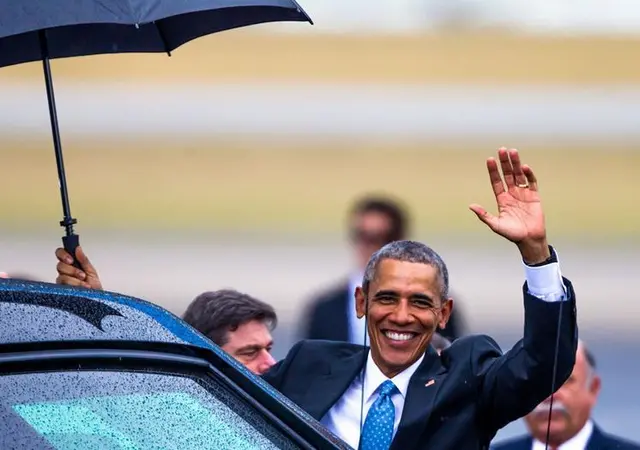Cuba hopes that U.S. President Barack Obama's historic visit will help spur his country's investment in the Caribbean island, a Cuban top official said Sunday.
The island seeks U.S. investment in 12 economic segments, including renewable energy, oil exploration and tourism, Cuban Minister of Foreign Trade and Investment Rodrigo Malmierca told a press conference.
Following their diplomatic thaw after half a century of animosity, the two countries have been working to boost their economic ties for mutual benefit, said Malmierca, noting that the U.S. business sector's interest in entering the Cuban market has greatly increased.
"For example, last year more than 100 U.S. delegations visited the island to explore trade opportunities, and took proposals away with them," said Malmierca.
Meanwhile, 20 Cuban firms have expressed an interest to import goods from the United States, and are now waiting to seal deals in the next few months.
"We want to diversify our international economic ties to the largest extent. The more diverse the U.S.-Cuba relationship is, the better and more sustainable chances we have to push forward political and social projects," said Malmierca.On Monday,
Obama will attend a business forum with representatives from both countries, as well as U.S. Trade Secretary Penny Pritzker.
At the forum, Cuban state-owned enterprises and private companies will present their investment proposals in different sectors.
"This kind of dialogue is very useful, because you can have respectful talks in a professional atmosphere, which contributes to decisions in consideration of the criteria of both sides," said the minister.
Four packages of measures, announced in recent months by the White House to relax trade and financial restrictions on Cuba, have had some impact, especially the one which allows Cuba to use the U.S. dollar in international transactions, said Malmierca.
However, the measures' practical effect on Cuba's economy remains to be seen, he added.
Many other restrictions on Cuba remain in place, including those that bar the country's access to U.S. loans or credit, he noted.
The Cuban government on Sunday repeated its call for Washington to end its long-time economic and financial blockade to create new investment opportunities for both nations.
"We can cooperate in different sectors, such as energy, oil exploration, tourism, infrastructure and other areas, to boost U.S. investment in Cuba. The blockade is the main obstacle to the full development of these ties," said Malmierca.
Lifting the blockade and returning the territory occupied by the U.S. Naval Base in Guantanamo are the conditions Havana has set for normalizing ties with Washington after more than 50 years of animosity.
The Cuban government has ruled out making political changes on the island as a concession for the full restoration of relations with the United States, saying only its people can choose its political and economic system.
Obama arrived in Cuba on Sunday, and in the eyes of many observers, his trip is nothing but a discord-sowing maneuver to disintegrate the left-wing league in Latin America.
Meanwhile, Obama's trip, together with other fence-mending efforts by his administration, has triggered an enormous backlash from U.S. demagogic presidential contenders.
Given Obama's lame-duck status, the effort to restore U.S.-Cuba relations is expected to be full of twists and turns ahead if the United States refuses to renounce its arrogance, analysts say. Enditem
 简体中文
简体中文

